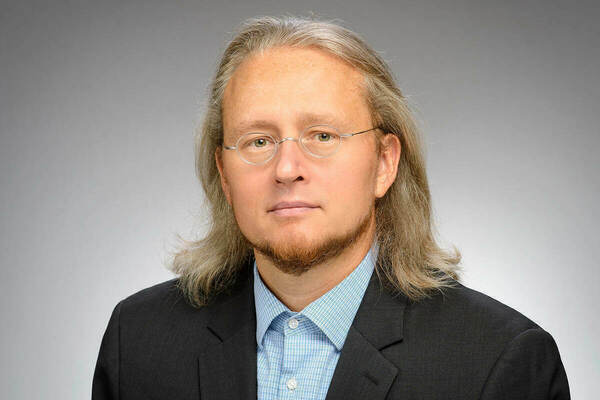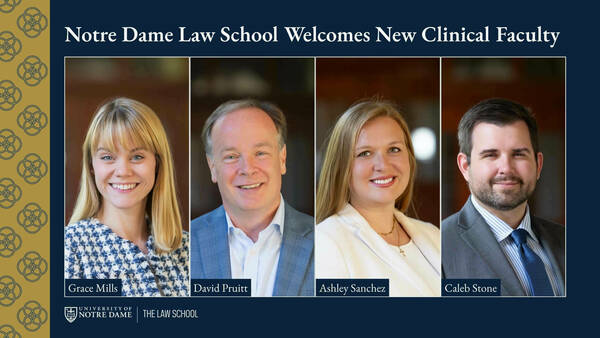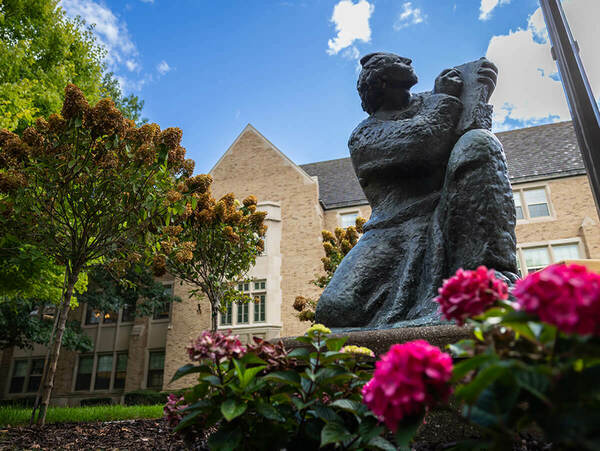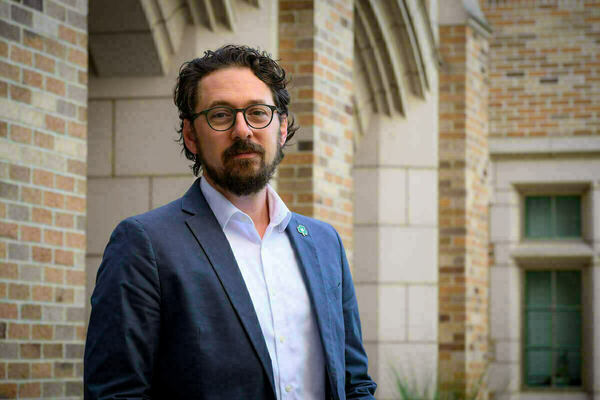In new research, Roy Scranton explores climate change and the limits of human progress
According to Roy Scranton, director of the University of Notre Dame’s Environmental Humanities Initiative, the biggest problem we face with climate change isn’t excessive carbon emissions or energy usage. And it isn’t the fundamental imbalance created by human activities that threatens ecosystems and has pushed the planet into instability.
The deeper problem, he argues, lies in the complexity of civilization itself — a global industrial society that has grown both unsustainably expensive and dangerously vulnerable to the environmental stresses that accompany climate change.
Because of this, he says, humanity is at an impasse.
That impasse is the foundation of Scranton’s latest research into what he sees as an intractable predicament where every fix faces potentially insurmountable challenges, from inertia and opposition to resource limits and competing priorities.

In his most recent book, “Impasse: Climate Change and the Limits of Progress,” Scranton, an associate professor of English, defines the impasse he sees as “not only political and institutional, but cognitive, existential and narrative” and asserts that the only path forward is through embracing what he terms ethical pessimism.
“A lot of people confuse pessimism with nihilism, apathy and despair,” Scranton said. “But pessimism is actually about recognizing our limits, letting go of unrealistic goals, finding solidarity in the fact of human suffering and doing what you can now, not in some utopian future.
“Modern pessimism emerged as a skeptical critique of early Enlightenment hubris, but it has roots in ancient wisdom from Sophocles to the Bhagavad Gita. Both the history of philosophy and modern insights from psychology show that pessimism is not only an effective way to deal with big problems, but a healthy approach to the unpredictability of circumstance, especially in fraught and difficult times.”
In “Impasse,” Scranton examines the “myth of progress,” how cultures have navigated societal collapse, failures in climate change communication, political extremism and “the end of the world as we know it,” ultimately concluding that the situation does not seem to be comprehensible within progressive modernity.
“These conclusions lead to a paradoxical and perilous ethical precipice,” he writes in the book. “The only way to cross the gap between progressive carbon-capitalist modernity and whatever comes next is to make a leap of faith, committing ourselves to an unknowable future.”
The second half of the book explores the origins of optimism and pessimism as both dimensions of personality and cognitive strategies, citing evidence from philosophy to neuroscience, as Scranton makes his case for ethical pessimism.
Our bias toward optimism, he cautions, may be “a characteristic of great evolutionary advantage of the long term, but under conditions of global ecological catastrophe has proven highly maladaptive.”
Pessimism, he concludes, is “an accurate, appropriate, and above all ethical response to the current situation — perhaps the only ethical response available.”
“Pessimism is fundamentally about recognizing and living within natural human limits,” Scranton writes. “It’s about recognizing that suffering is inevitable but not unbearable. It’s about learning to die and learning to live with death. And finally, it’s about committing to a radical and paradoxical hope: the hope that life might be worth living after the end of the world.”
Contact: Carrie Gates, associate director of media relations, 574-993-9220, c.gates@nd.edu
Originally published by at news.nd.edu on September 04, 2025.
Latest Research
- ND research teams awarded funding to address sustainability challenges around the worldNotre Dame's Just Transformations to Sustainability Initiative has awarded funding to three cross-disciplinary faculty teams leading research on pressing sustainability issues—including forest conservation in the Amazon, watershed…
- Fighting to improve hurricane forecastsResearchers at Notre Dame are improving hurricane forecast accuracy, giving officials time to evacuate and protect residents. Read the article
- 2025 Naughton Fellowships awarded to four joint faculty projectsThe University of Notre Dame’s Naughton Fellowship program has announced its faculty awardees for the 2025-2026 cohort. Faculty from leading Irish universities and Notre Dame have come together to work on four research projects as a part of the Naughton Faculty…
- Notre Dame Law School Welcomes Four New Clinical Faculty Members for 2025–26Notre Dame Law School is pleased to welcome four new clinical faculty members for the 2025–26 academic year. “It is an honor to welcome such a distinguished group of clinical professors to Notre Dame Law School. Their impressive achievements and deep sense of vocation will enrich our academic…
- Six early-career scholars join the inaugural Provost’s Postdoctoral Fellowship Program.Six interdisciplinary scholars have joined the College of Arts & Letters at the University of Notre Dame to continue their research, obtain invaluable support, and engage in professional development as part of the inaugural Provost’s…
- Politics inspired Democracy Initiative managing director from early ageThis is the first in a series of features highlighting the managing directors of the University's strategic initiatives. The managing directors are key (senior) staff members who work directly with the faculty directors to help implement and operationalize the vision for the initiatives, oversee initiative staff, and serve as thought partners for the faculty directors.











